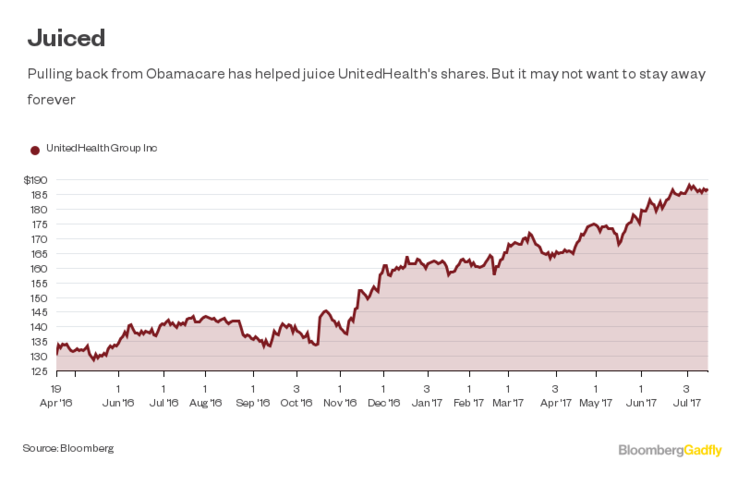UnitedHealth could continue to bulk up Optum; it has already shelled out more than $16 billion on deals focused on the unit over the past two years. But with $18 billion in cash on hand and healthy free cash flow, it has plenty of dry powder for other bets.
If the ACA's individual market continues to stabilize -- a huge if! -- it could be an attractive area of future growth, given how many other insurers have joined UnitedHealth in retreating. And there are are reasons to think the company might do better there a second time around.
UnitedHealth can learn from those rivals and from its own experience, including its relatively successful Medicaid business -- a market with some similarities to the exchanges. And the company believes its integration with Optum's technology and other services gives it a cost advantage. There's no reason that shouldn't extend to the exchanges.
It's possible the Medicaid business might prod re-entry in another way. Some states are pondering cutting insurers who don't participate in the individual exchanges out of Medicaid contracts. When an analyst asked about that possibility on Tuesday's earnings call, CEO Stephen Hemsley said the firm hasn't seen any trend suggesting states will broadly tie the programs together. But given UnitedHealth is the third-largest for-profit Medicaid insurer and competes with firms with a much larger exchange presence, it's something to watch.
An abundance of caution is warranted, and any expansion should be slow. But just because UnitedHealth very publicly broke up with Obamacare doesn't mean a reunion is impossible.
Max Nisen is a Bloomberg Gadfly columnist covering biotech, pharma and health care. He previously wrote about management and corporate strategy for Quartz and Business Insider.
This column was provided by Bloomberg News.

UnitedHealth's insurance business has been benefiting from Medicare Advantage, a private alternative to traditional Medicare. But UnitedHealth will face increased competition there from other large insurers, including Anthem Inc., Cigna Corp., and Humana Inc. Its opportunities to expand via acquisition are limited; it's already among the market-share leaders everywhere but the ACA exchanges. And the government rejected two insurance industry mega-mergers this year.

Rivals such as Molina Healthcare Inc. and Centene Corp. have largely thrived in the individual market. This suggests that, though UnitedHealth's struggles were partly due to ACA flaws, poor execution also had a role.
An Obamacare Return For UnitedHealth? Don't Laugh!
July 19, 2017
« Previous Article
| Next Article »
Login in order to post a comment








